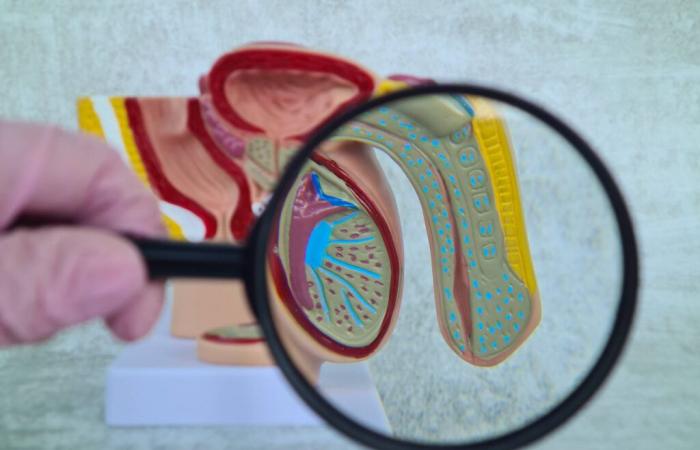Rare, but quite aggressive, penile cancer is fortunately detected very early in the majority of cases.
“In 95% of cases, it is a squamous cell carcinoma, in other words a skin cancer (1), most often located on the glans”informs in the preamble Dr Pierre-Henri Savoie, urologist at the Polyclinique des Fleurs in Ollioules (2).
Skin cancer
“It is an increasingly common cancer, even if it remains quite rare, with 500 new cases per year in France, continues the specialist. In 30 to 50% of cases, it is linked to the papillomavirus (HPV), which can be protected by vaccination (1).”.
Multiple partners, local inflammation, phimosis – the narrowing of the tip of the foreskin – and poor genital hygiene are well-identified risk factors.
The majority of patients are over 70 years old, “even if the involvement of HPV tends to rejuvenate this population” Professor Savoie further specifies.
Detection and diagnosis
While this is not always the case for other locations, squamous cell carcinoma of the penis is visible to the naked eye, which facilitates early identification. “It can appear in the form of a pimple or ulceration on the skin, often painless. It is important to consult as soon as a red spot is spotted. It may be a benign lesion or ‘a precancerous stage.’
Imaging (MRI) and a pathological examination of the tumor lesion make it possible to confirm the diagnosis and specify the stage and type of cancer.
An essentially surgical treatment
When the cancer is localized, treatment is generally surgical. “We remove the lesion while trying to be as conservative as possible to preserve urination and sexual functions, as much as possible. This possibility depends on the stage at which the cancer is detected.”
An alternative exists, if the lesion is small: “We can offer chemotherapy cream or laser treatment, but if it is too big, surgery is unavoidable.”
As this cancer is very aggressive, it is also necessary to carry out an exploration of the inguinal folds of the groin, where the closest lymph nodes are located, the first stages of extension of the cancer. But metastatic development remains rare. “In the event of spread of cancer cells, there are triple possibilities of chemotherapy. Concerning immunotherapy, the studies are a little disappointing, unlike the results obtained against melanoma.”
1. Rare types of penile cancer can also occur. Examples are adenocarcinoma, melanoma and basal cell carcinoma.
2. He spoke on this theme during the last edition of the UroPaca Meetings.






